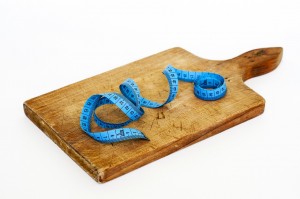Why do we find dieting so difficult? A new weight loss survey about the problems surrounding weight loss, suggests that motivation remains a critical factor. Lack of incentive to lose weight, hunger and inability to cope with “bad days” are common problems. Anne Collins explains how to overcome these problems and achieve your weight loss goals.
Weight loss survey results
Current levels of overweight and obesity, together with weight-related disease, have made weight control a major health priority throughout America. Yet statistics indicate that average weight reduction on conventional diets adds up to a mere 5-8 pounds per year. So why do we find dieting so difficult? According to a new survey (1), the answer seems to be: because we make 3 crucial mistakes. We don’t have a good enough incentive; we allow ourselves to go hungry; and we can’t cope with “bad days”.
The weight loss survey asked dieters to select the three biggest problems they faced when dieting. The most common problems reported were: “Inadequate incentive to lose weight” (76%); “Hunger” (72%); and “Bad days” (70%). Although these results will come as no surprise to most dieters, they highlight the importance of motivation in the dieting process. We examine how these problems occur, and what steps can be taken to overcome them.
Why Do We Need an Incentive?
We gain weight because we take in more energy than we use. Either because we eat too many calories, or burn too few, or both. As part of the weight loss survey we learned that if we want to reduce weight, we need to improve our eating and exercise habits. And this is not easy, because let’s face it – old habits are not easily discarded, especially if they involve cutting out our favorite treats. We need a powerful incentive to help us change. Specifically, we need an answer to the question: “How exactly will I benefit from losing weight?”
When faced with this question, many dieters have no answer. Those who do, typically reply: “I’ll feel better” or “my health will improve”. Others explain they are trying to lose weight to please their doctor, or their partner, or simply because they are “overweight”. Unfortunately, none of these reasons are strong enough to help us succeed. So when temptation strikes, we are unable to resist. At least that was reported in this weight loss survey.
What Type of Incentive is Best?
Our motivation to lose weight must be based on a selfish, specific benefit. A good example might be an upcoming beach holiday, or a family occasion, or the achievement of a specific mobility or fitness goal. It must be as specific as possible (general benefits are useless) and ideally related to a fixed date. In addition, it must be selfish. Losing weight to please others rarely works. The advice I give to my clients is very simple. Do not bother dieting unless you have a good incentive. According to the weight loss survey, because no matter how good the diet, no matter how valuable the exercise plan, unless you have a powerful reason to change your habits you won’t succeed.
Hunger Kills Diets
Most dieters are still convinced that calories are their enemy. So the less they eat, the faster they are likely to lose weight. This is not true. In reality, the less we eat, the more hungry we get and the easier it is to fall into temptation. The human body is trained to eat when hungry and no amount of willpower will neutralize this basic urge. This is why binge eating is such a common response to low calorie diets.
How to Avoid Hunger
No rocket science here in this weight loss survey. Avoiding hunger simply means eating regularly throughout the day, and keeping your calorie intake above 1000-1200 per day. This prevents hunger, thus reducing the urge to overeat, and in addition helps to maintain a regular high level of calorie-burning.
Eat Too Much Rather Than Too Little
We all have days when we feel extra hungry, even when we are dieting. This is no problem – simply eat more! It is always better to eat a little too much than not enough. Might this delay your weight loss? Yes. But so what? Taking a few extra days to achieve your goal is not a problem. The real danger is not eating enough and ending up hungry and depressed. This is a recipe for a binge.
Bad Days and The Problem of Perfection
No dieter is perfect. But you don’t need a weight loss survey to tell you that. The truth is, all dieters experience “bad days” or fall into occasional temptation. Sadly, most dieters insist on “being perfect”. They cannot tolerate these lapses. So if (say) they visit a friend and end up eating 2 containers of ice cream and a box of cookies, they go to pieces. “I’m useless!” they cry. “I’m a failure!” Overwhelmed by guilt at not being perfect, they then quit their diet in disgust.
It’s the Guilt That Does the Damage
In this situation, the actual binge is typically fairly harmless. I mean, we need to eat a huge quantity of food (3500+ calories) to gain even one pound of weight. The real damage is caused by the ensuing guilt. And this is what we need to address.
Guilt Comes From Trying to Be Perfect
All dieters make mistakes and this is perfectly normal. Having an occasional binge is no cause for alarm, far less guilt. Even my most successful clients – those who have lost 100+ pounds – had regular lapses. And as reported in the weight loss survey, the difference is, they didn’t see themselves as “perfect” individuals. So they felt “entitled” to make occasional mistakes, and so should you. Once you accept this, you will find dieting a whole lot easier.
We Need Support to Make These Changes
In order to overcome the 3 problems described above, an essential first step is to find proper support. This is just as important as choosing the right diet plan, because no matter how good the diet, it can’t motivate you to stay on track – only people can do this. Dieting is ten times easier when you receive encouragement from others. So when choosing an online weight loss program, choose one with an active forum. Because at the end of the day, it’s all about people. When we are alone and isolated, the smallest obstacle can seem like a mountain. But when we have people behind us, anything is possible.
If this information on the weight loss survey got your interest. And if you already know that you would like to learn more about losing weight and living a healthy lifestyle, find out more about my story at : http://bit.ly/1rLhW2c
Notes:
1. Weight Loss Survey (Oct 2005) by annecollins.com. A total of 17,403 subjects replied to the survey. They were asked to choose 3 from a list of 10 diet-problems. The results were as follows:
(1) Inadequate Incentive (76%).
(2) Hunger (72%).
(3) Bad Days (70%).
(4) Boredom (69%).
(5) Stress (60%).
(6) Interference From Others (51%).
(7) Too Much Eating Out (32%).
(8) Eating on The Run (28%).
(9) Ill-health (5%).
(10) Lack of Sleep (1%).
